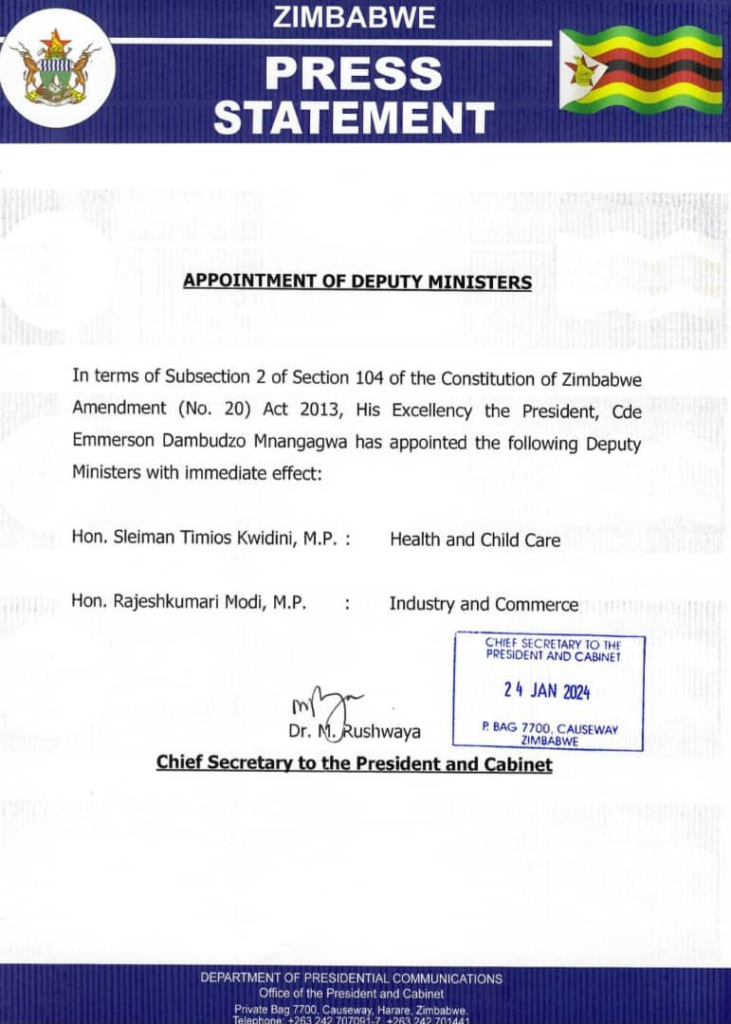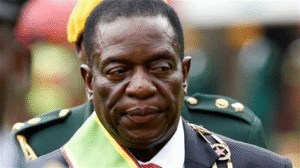ZIMBABWE’S BLOATED EXECUTIVE: A LUXURY THE NATION CANNOT AFFORD

In Zimbabwe, the recent appointment of two additional deputy ministers has reignited a fiery debate about the country’s excessively large executive branch. This move raises a critical question: Does Zimbabwe truly need deputy ministers, especially considering they hold no cabinet positions and lack the authority to act as ministers in any capacity?
The situation appears starkly incongruous in a nation where poverty is rampant. Taxpayers, many of whom struggle to meet their daily needs, are now compelled to finance the extravagant lifestyles of these deputy ministers. The perks of their positions include substantial salaries, luxurious houses, and high-end vehicles, all provided at the expense of the public. These benefits are not merely symbolic; they represent a significant financial burden on a nation where basic infrastructure such as roads, hospitals, and schools lie in a state of disrepair.
The issue at hand is not just about the appointment of a few additional officials; it reflects a deeper, systemic problem of profligacy within the Zimbabwean government. The existing cabinet is already considered excessively large for a country of Zimbabwe’s size and economic status. This unwarranted expansion of the executive is more than an administrative concern; it is a glaring indication of misallocated resources and priorities.
Critics argue that these deputy ministers add little to no value to national development. Their roles are seen as redundant, contributing to an already cumbersome bureaucratic system. In a country where significant portions of the population grapple with poverty, unemployment, and lack of access to basic services, the justification for such opulence in the government ranks is increasingly hard to find.
The financial implications are profound. The money spent on maintaining this bloated executive could be redirected towards much-needed public services. The state of Zimbabwe’s infrastructure is a pressing issue; roads are in dire need of repair, hospitals lack basic equipment and supplies, and schools are often overcrowded and under-resourced. Investing in these areas could yield substantial improvements in the quality of life for many Zimbabweans and contribute to the country’s overall development.
Moreover, this extravagance sends a disheartening message to the citizens. While the average Zimbabwean endures hardships, their leaders appear to be insulated from these struggles, living in a bubble of luxury funded by the public purse. This disconnect between the government and the people it serves undermines public trust and confidence in the leadership.
The debate over the necessity of deputy ministers in Zimbabwe is more than a question of government structure. It is a reflection of the broader challenges facing the country. The government’s responsibility is to serve its people, and this service must be characterized by efficiency, fiscal responsibility, and a focus on the public good. The expansion of an already bloated executive runs counter to these principles.
In conclusion, the appointment of additional deputy ministers in Zimbabwe is a contentious issue that highlights the need for a more prudent and people-focused approach to governance. The country’s leaders must recognize that the resources at their disposal are not for personal aggrandizement but for the betterment of the nation as a whole. A leaner, more efficient government not only saves money but also signals a commitment to addressing the real and pressing needs of the Zimbabwean people. This is the path to genuine national development and prosperity.



